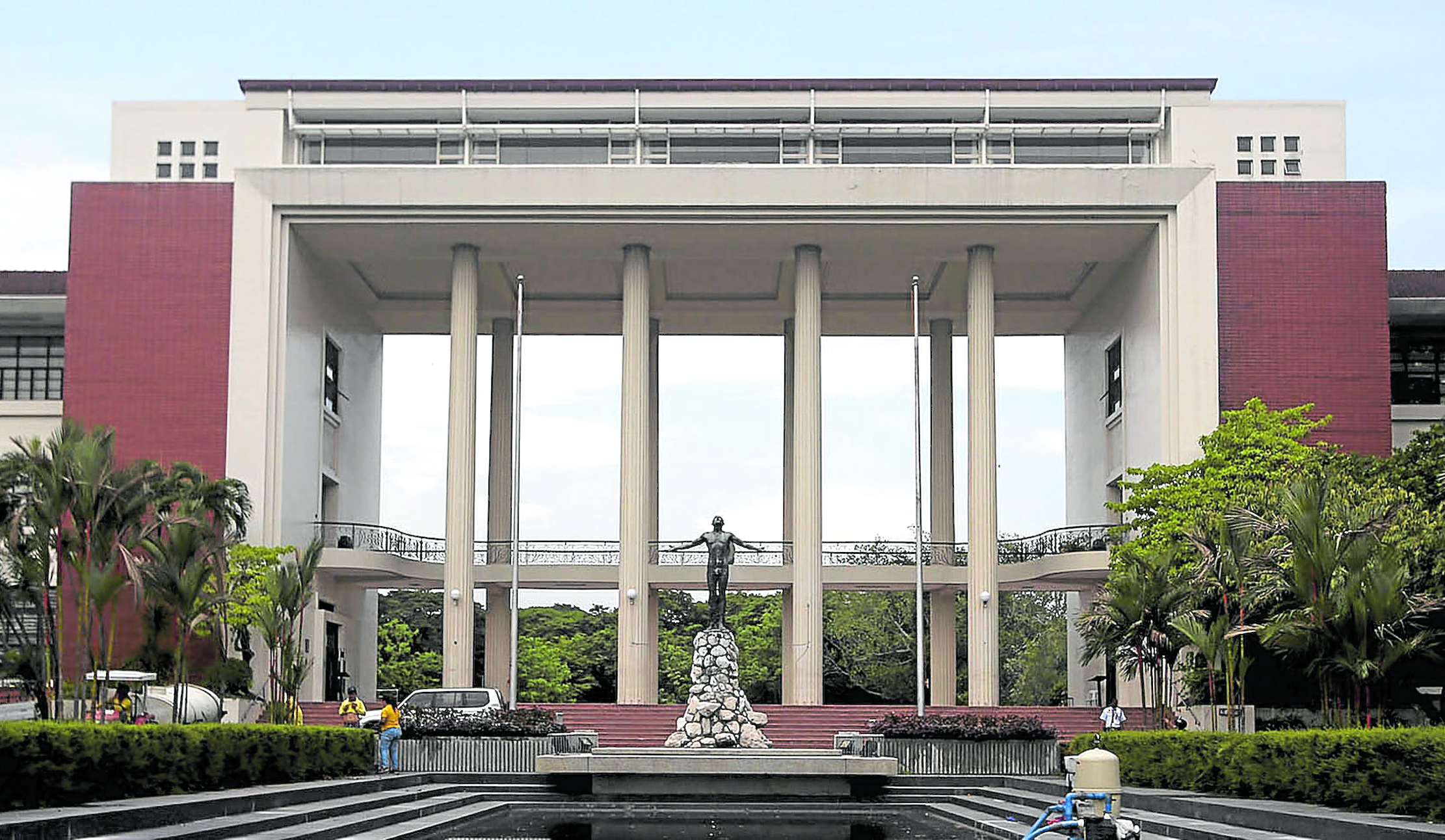
FILE PHOTO: From 44 percent in 2022, the number of UP College Admission Test (UPCAT) qualifiers from public schools jumped to 50 percent in 2023 and to 56 percent in 2024, according to its president Angelo Jimenez. INQUIRER / RICHARD A. REYES
MANILA, Philippines — It is no longer true that the University of the Philippines (UP) is “burgis,” according to its president Angelo Jimenez.
From 44 percent in 2022, the number of UP College Admission Test (UPCAT) qualifiers from public schools jumped to 50 percent in 2023 and to 56 percent in 2024, Jimenez reported to the Senate on Tuesday.
“So it’s no longer true na burgis ang UP, according to a socmed [user],” he said when he presented the university’s proposed budget for 2025 before the Senate subcommittee on finance.
His remark was an apparent reference to a social media (socmed) user’s recent comment against an athlete-student of UP.
“Burgis na nasa UP,” the socmed user commented last month in one of the videos of Bethany Talbot, who is also known for her beauty and fashion content on TikTok.
READ: Football player Bethany Talbot faces criticism for enrolling in UP as a ‘burgis’
Based on the 2024 UPCAT results, 44 percent of the UPCAT qualifiers come from private schools, 27 percent from public science high schools, and 29 percent from general public schools, Jimenez said.
“So 56 percent already come from public high schools in our country today,” he pointed out.
Part of this is because of the opening of more UPCAT centers in 115 provinces, four of which are in the National Capital Region, Jimenez said.
“Also, we already no longer extract or demand fees for taking the UPCAT. It’s already free, we already shoulder that with our own budget,” he added.
He also attributed this latest development to new programs introduced by the university to make UP education more accessible for all.
One of them is the introduction of an Associate in Arts degree for students “who can’t compete in the UPCAT.”
“These are two-year certificate degrees and that serve as an UPCAT. The general weighted average in two years will serve as their UPCAT. If they meet the standard, they can proceed to a regular bachelors degree after the second year,” the UP president explained.
Jimenez likewise cited other educational benefits that UP extends to poor but deserving students.
According to him, an average of 1,400 students pass the UPCAT each year but do not proceed to UP, with 40 percent saying they have no money.
This was why the university opened a new program called Lingap Aral this year for qualifiers from GIDA, or geographically isolated and disadvantaged areas.
“We’re providing them 90 percent allowance for food, P90,000 a year for food; P30,00 for dormitories, P10,000 for communications, and P10,000 for transportations,” Jimenez said.